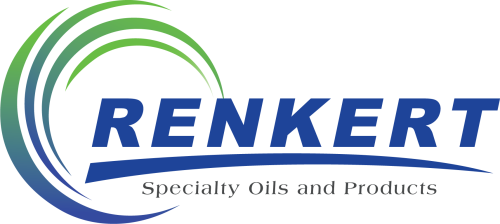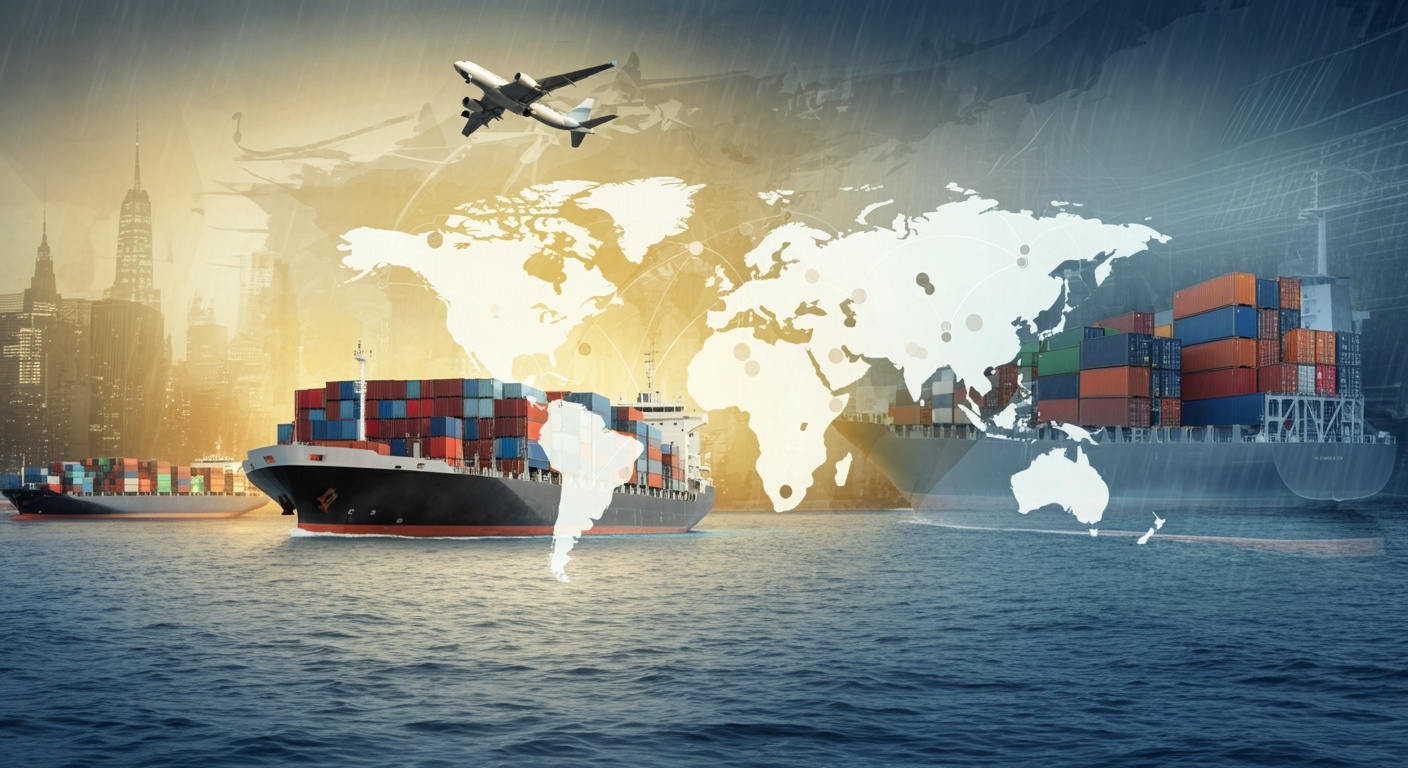Tariffs, duties, and customs issues can have a major influence on both the prices your base oil suppliers set on specialty oil products and your final costs.
Recently, the Trump administration has targeted many Canadian energy imports with additional duties for products that are not compliant with the United States-Mexico-Canada Agreement (USMCA), increasing the cost of doing business for many lubricant manufacturers.
However, suppliers who offer USMCA-compliant products can help you avoid the steep extra fees. Below is a deep dive into the new tariffs, additional information for non-U.S. customers, and why having an expert base oil supplier at your side is more important than ever.
Suzanne Kingsbury, Director of Quality
The Trump Administration’s Tariffs on Canadian Energy Imports
In March 2025, the Independent Lubricant Manufacturers Association (ILMA) published guidance from U.S. Customs and Border Protection (CBP) regarding Canadian energy imports.
According to the CBP list, certain refined petroleum products qualify for a reduced 10 percent duty if they meet USMCA requirements.
However, many raw material inputs—including petroleum-based lubricating oils under Heading 27 of the Harmonized Tariff Schedule of the United States (HTSUS)—that do not meet strict rules of origin remain subject to a 25 percent tariff.
Examples of Energy Resources Potentially Subject to Additional Duties (CBP List)
- Mixtures of hydrocarbons (not over 50% of any single hydrocarbon), insulating or transformer oils
- Mixtures of hydrocarbons (not over 50% of any single hydrocarbon), renewable fuel blends with ≥51% biofuel
- Mixtures of hydrocarbons (not over 50% of any single hydrocarbon), other
- Mixtures of hydrocarbons (not over 50% of any single hydrocarbon), insulating or transformer oils
CBP’s narrow interpretation means many raw materials, especially those not explicitly listed as “energy resources,” are subject to the general 25 percent tariff if they aren’t USMCA-compliant.
The bottom line: a product either needs to meet USMCA rules of origin or risk incurring hefty import fees.
The Importance of USMCA Compliance for Base Oil Suppliers
If you source from non-compliant suppliers, the extra duties imposed by President Trump’s executive orders can drive up your costs significantly.
USMCA-compliant products, on the other hand, can bypass many of these tariffs or see them sharply reduced. That’s why it’s crucial to ensure your base oil supplier:
- Understands USMCA Requirements: Proper origin documentation and strict adherence to rules of origin allow you to avoid additional duties.
- Sources Canadian Products Strategically: Not all Canadian-sourced products automatically qualify for preferential treatment. A supplier who diligently verifies compliance can help you cut costs.
- Sources U.S.-Based Materials: Suppliers based in the U.S. can reduce your costs further by leveraging a strong domestic supply chain as much as possible.
Renkert Oil, for instance, focuses on a wide selection of U.S.-sourced, duty-free mineral oils for the great majority of its volume. We work with base oils and specialty oil products that meet USMCA criteria, which should ease concerns about countervailing duties if shipped to Canada.
Because these in-demand products are exempt from the 25 percent tariffs on noncompliant Canadian imports, lubricant manufacturers partnering with Renkert Oil for these products enjoy lower, more stable pricing.
Customs and Duties for Non-U.S. Buyers: Key Global Regions
For customers outside the United States—such as North America, South America, the Caribbean, or Europe—import regulations, duties, and local taxes also shape the final cost of delivered base oils.
Knowing the basics can help you budget effectively. It’s also important to work with suppliers who understand how the shifting regulatory landscape affects your bottom line.
1. North America (Canada & Mexico)
- USMCA: Eliminates or reduces most customs duties on goods that meet rules of origin.
- Taxes: Buyers pay internal taxes such as GST/HST in Canada or IVA in Mexico.
- Documentation: Proper certificates of origin are essential for USMCA benefits.
2. South America
- Bilateral FTAs vs. Mercosur: Countries like Chile, Colombia, and Peru have Free Trade Agreements with the U.S., potentially reducing or zeroing out duties. Mercosur members (e.g., Brazil, Argentina) apply a Common External Tariff (CET) on non-member imports.
- Taxes: Internal taxes (e.g., IVA) add to the total landed cost.
- Process: Confirm relevant FTA rules and codes for each destination.
3. The Caribbean
- CARICOM & CBI Programs: Many nations apply the Common External Tariff (CET) within CARICOM, while some U.S. preference programs (e.g., Caribbean Basin Economic Recovery Act (CBERA/CBI) offer lower or zero duties for certain goods.
- Taxes: VAT or sales taxes vary by country.
- Process: Engage a local customs broker for clarity on CET applications and eligibility for U.S. trade preferences.
4. Europe
- European Union: Imports from the U.S. are subject to the EU’s Common Customs Tariff (CCT). A standard Value Added Tax (VAT) also applies. Rates vary by member state, from about 17% in Luxembourg to 27% in Hungary.
United Kingdom: Applies its own UK Global Tariff (UKGT) and levies VAT on imports post-Brexit. - Other European Nations: Non-EU countries like Switzerland or Norway have separate tariff schedules and local tax rates.
- Process: The HS Code classification (often Chapter 27 for base oils) determines specific duty rates.
Disclaimer: Regulations change frequently. Always consult with local customs authorities or brokers for the most up-to-date rules.
Why Choose Base Oil Supplier Renkert Oil: Your Partner in a Turbulent Trade Landscape
Renkert Oil offers more than just the product itself. We function as a knowledgeable guide through complex international trade requirements.
Tariff Exemption & USMCA Compliance
- We leverage our U.S. supply chain—and strict USMCA compliance for products sourced from the USA, Canada and Mexico—helping you dodge the 25% tariffs.
- Where possible, we ensure you benefit from lower duties or zero-duty rates.
Global Supply Chain Management
- Swift, Direct Delivery: We buy and store products in our own terminals, ensuring availability and rapid shipment.
- Supplier Redundancy: Long-standing relationships with Chevron and Shell give you secure, uninterrupted access to base oils and specialty products—even amid global disruptions.
Broad Geographic Reach
- With storage and shipping sites in North America, Europe, and beyond, we minimize transit times and maintain backup supply points.
- This redundancy reduces the risk of delays due to political unrest, natural disasters, or sudden market spikes.
Expert Guidance on Customs & Duties
- Our team stays informed of changing international regulations, documentation needs, and potential tax liabilities.
- We advise you on Harmonized System Code classifications, rules of origin, and local taxes so you can accurately forecast total landed costs.
Beat Tariffs and Simplify Global Logistics with Renkert Oil
Whether you’re a lubricant manufacturer in the U.S. looking to avoid the steep tariffs on Canadian energy imports—or an international buyer concerned about duties and local taxes—partnering with a base oil supplier that understands the ever-changing trade environment is crucial.
Renkert Oil offers USMCA-compliant, competitively priced base oils and specialty products, along with a robust supply chain network and in-depth knowledge of global customs regulations.
Ready to explore a smarter, more cost-effective supply solution? Reach out to Renkert Oil today for expert advice on tariffs, duties, and everything you need to keep your costs down and your operations running smoothly.

